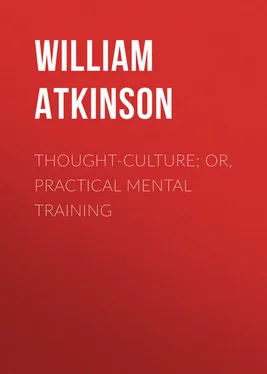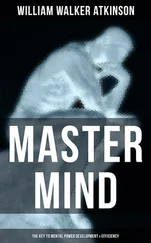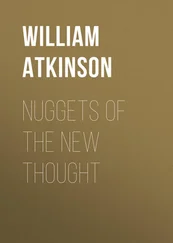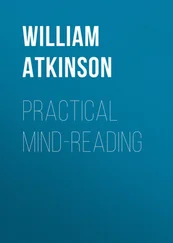William Atkinson - Thought-Culture; Or, Practical Mental Training
Здесь есть возможность читать онлайн «William Atkinson - Thought-Culture; Or, Practical Mental Training» — ознакомительный отрывок электронной книги совершенно бесплатно, а после прочтения отрывка купить полную версию. В некоторых случаях можно слушать аудио, скачать через торрент в формате fb2 и присутствует краткое содержание. ISBN: , Жанр: foreign_antique, foreign_prose, на английском языке. Описание произведения, (предисловие) а так же отзывы посетителей доступны на портале библиотеки ЛибКат.
- Название:Thought-Culture; Or, Practical Mental Training
- Автор:
- Жанр:
- Год:неизвестен
- ISBN:http://www.gutenberg.org/ebooks/41519
- Рейтинг книги:4 / 5. Голосов: 1
-
Избранное:Добавить в избранное
- Отзывы:
-
Ваша оценка:
- 80
- 1
- 2
- 3
- 4
- 5
Thought-Culture; Or, Practical Mental Training: краткое содержание, описание и аннотация
Предлагаем к чтению аннотацию, описание, краткое содержание или предисловие (зависит от того, что написал сам автор книги «Thought-Culture; Or, Practical Mental Training»). Если вы не нашли необходимую информацию о книге — напишите в комментариях, мы постараемся отыскать её.
Thought-Culture; Or, Practical Mental Training — читать онлайн ознакомительный отрывок
Ниже представлен текст книги, разбитый по страницам. Система сохранения места последней прочитанной страницы, позволяет с удобством читать онлайн бесплатно книгу «Thought-Culture; Or, Practical Mental Training», без необходимости каждый раз заново искать на чём Вы остановились. Поставьте закладку, и сможете в любой момент перейти на страницу, на которой закончили чтение.
Интервал:
Закладка:
Halleck says: "Nature is constantly using her power to kill off the thoughtless, or to cripple them in life's race. She is determined that only the fittest and the descendants of the fittest shall survive. By the 'fittest' she means those who have thought and whose ancestors have thought and profited thereby. Geologists tell us that ages ago there lived in England bears, tigers, elephants, lions and many other powerful and fierce animals. There was living contemporaneous with them a much weaker animal, that had neither the claws, the strength, nor the speed of the tiger. In fact this human being was almost defenceless. Had a being from another planet been asked to prophesy, he would undoubtedly have said that this helpless animal would be the first to be exterminated. And yet every one of those fierce creatures succumbed either to the change of climate, or to man's inferior strength. The reason was that man had one resource denied to the animals – the power of progressive thought. The land sank, the sea cut off England from the mainland, the climate changed, and even the strongest animals were helpless. But man changed his clothing with the changing climate. He made fires; he built a retreat to keep off death by cold. He thought out means to kill or to subdue the strongest animals. Had the lions, tigers or bears the power of progressive thought, they could have combined, and it would have been possible for them to exterminate man before he reached the civilized stage… Man no longer sleeps in caves. The smoke no longer fills his home or finds its way out through the chinks in the walls or a hole in the roof. In traveling, he is no longer restricted to his feet or even to horses. For all this improvement man is indebted to thought . That has harnessed the very vibrations of the ether to do his bidding."
And thus we see that man owes his present place on earth to his Thought-Culture. And, it certainly behooves us to closely consider and study the methods and processes whereby each and every man may cultivate and develop the wondrous faculties of the mind which are employed in the processes of Thought. The faculties of the Mind, like the muscles of the body, may be developed, trained and cultivated. The process of such mental development is called "Thought-Culture," and forms the subject of this book.
CHAPTER II
THE NATURE OF THOUGHT
It was formerly considered necessary for all books on the subject of thought to begin by a recital of the metaphysical conceptions regarding the nature and "thingness" of Mind. The student was led through many pages and endless speculation regarding the metaphysical theories regarding the origin and inner nature of Mind which, so far from establishing a fixed and definite explanation in his mind, rather tended toward confusing him and giving him the idea that psychology was of necessity a speculative science lacking the firm practical basis possessed by other branches of science. In the end, in the words of old Omar, he "came out the door through which he went."
But this tendency has been overcome of late years, and writers on the subject pass by all metaphysical conceptions regarding the nature of Mind, and usually begin by plunging at once into the real business of psychology – the business of the practical study of the mechanism and activities of the mind itself. As some writer has said, psychology has no more concern with the solution of the eternal riddle of "What is Mind?" than physics with the twin-riddle of "What is Matter?" Both riddles, and their answers, belong to entirely different branches and fields of thought than those concerned with their laws of operation and principles of activity. As Halleck says: "Psychology studies the phenomena of mind, just as physics investigates those of matter." And, likewise, just as the science of physics holds true in spite of the varying and changing conceptions regarding the nature of matter, so does the science of psychology hold true in spite of the varying and changing conceptions regarding the nature of Mind.
Halleck has well said: "If a materialist should hold that the mind was nothing but the brain, and that the brain was a vast aggregation of molecular sheep herding together in various ways, his hypothesis would not change the fact that sensation must precede perception, memory and thought; nor would the laws of the association of ideas be changed, nor would the fact that interest and repetition aid memory cease to hold good. The man who thought his mind was a collection of little cells would dream, imagine, think and feel; so also would he who believed his mind to be immaterial. It is very fortunate that the same mental phenomena occur, no matter what theory is adopted. Those who like to study the puzzles as to what mind and matter really are must go to metaphysics. Should we ever find that salt, arsenic and all things else are the same substance with a different molecular arrangement, we should still not use them interchangeably."
For the purposes of the study of practical psychology, we may as well lay aside, if even for the moment, our pet metaphysical conceptions and act as if we knew nothing of the essential nature of Mind (and indeed Science in truth does not know), and confine ourselves to the phenomena and manifestations of Mind which, after all, is the only way in which and by which we can know anything at all about it. As Brooks says: "The mind can be defined only by its activities and manifestations. In order to obtain a definition of the mind, therefore, we must observe and determine its various forms of activity. These activities, classified under a few general heads and predicated of the unseen something which manifests them, will give us a definition of mind."
The act of consciousness determines the existence of Mind in the person experiencing it. No one can be conscious of thought and, at the same time, deny the existence of mind within himself. For the very act of denial, in itself, is a manifestation of thought and consequently an assertion of the existence of mind. One may assert the axiom: "I think, therefore, I have a mind;" but he is denied the privilege of arguing: "I think, therefore, I have no mind." The mind has an ultimate and final knowledge of its own existence.
The older view of Mind is that it is a something higher than matter which it uses for its manifestation. It was held to be unknowable in itself and to be studied only through its manifestations. It was supposed to involve itself, to become involved, in some way in matter and to there manifest itself in an infinitude of forms, degrees, and variations. The materialistic view, which arose into prominence in the middle of the Nineteenth Century, held, on the contrary, that Mind was merely an activity or property of Matter – a function of matter akin to extension and motion. Huxley, voicing this conception said: "We have no knowledge of any thinking substance apart from an extended substance… We shall, sooner or later, arrive at a mechanical equivalent of consciousness, just as we have arrived at a mechanical equivalent of heat." But, Huxley, himself, was afterwards constrained to acknowledge that: "How it is that anything so remarkable as a state of consciousness comes about by the result of irritating nervous tissue, is just as unaccountable as the appearance of the jinnee when Aladdin rubbed his lamp."
The most advanced authorities of the day, are inclined to the opinion that both Matter and Mind are both differing aspects of some one fundamental Something; or, as some of the closest thinkers state it, both are probably two apparently differing manifestations or emanations of an Underlying Something which, as Spencer says: "transcends not only our reason but also our imagination." The study of philosophy and metaphysics serves an important purpose in showing us how much we do not know , and why we do not know – also in showing us the fallacy of many things we had thought we did know – but when it comes to telling us the real "why," actual cause, or essential nature of anything , it is largely a disappointment to those who seek fundamental truths and ultimate reasons. It is much more comfortable to "abjure the 'Why' and seek the 'How'" – if we can.
Читать дальшеИнтервал:
Закладка:
Похожие книги на «Thought-Culture; Or, Practical Mental Training»
Представляем Вашему вниманию похожие книги на «Thought-Culture; Or, Practical Mental Training» списком для выбора. Мы отобрали схожую по названию и смыслу литературу в надежде предоставить читателям больше вариантов отыскать новые, интересные, ещё непрочитанные произведения.
Обсуждение, отзывы о книге «Thought-Culture; Or, Practical Mental Training» и просто собственные мнения читателей. Оставьте ваши комментарии, напишите, что Вы думаете о произведении, его смысле или главных героях. Укажите что конкретно понравилось, а что нет, и почему Вы так считаете.












